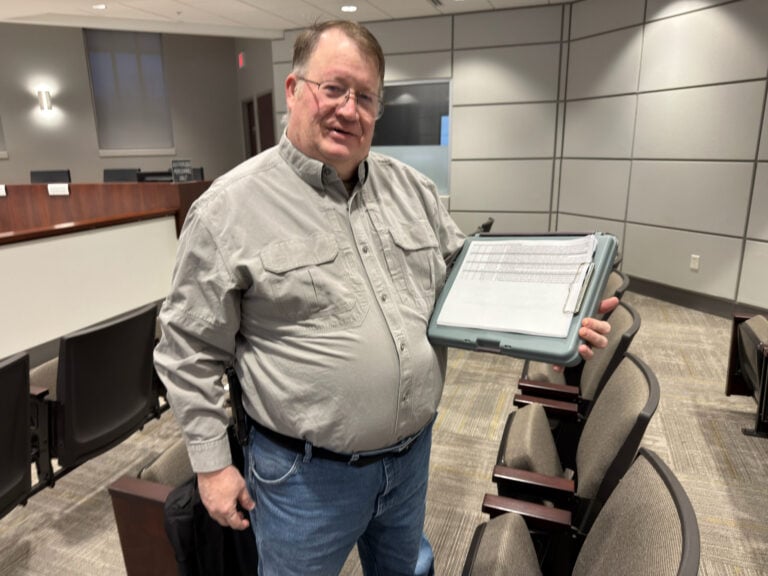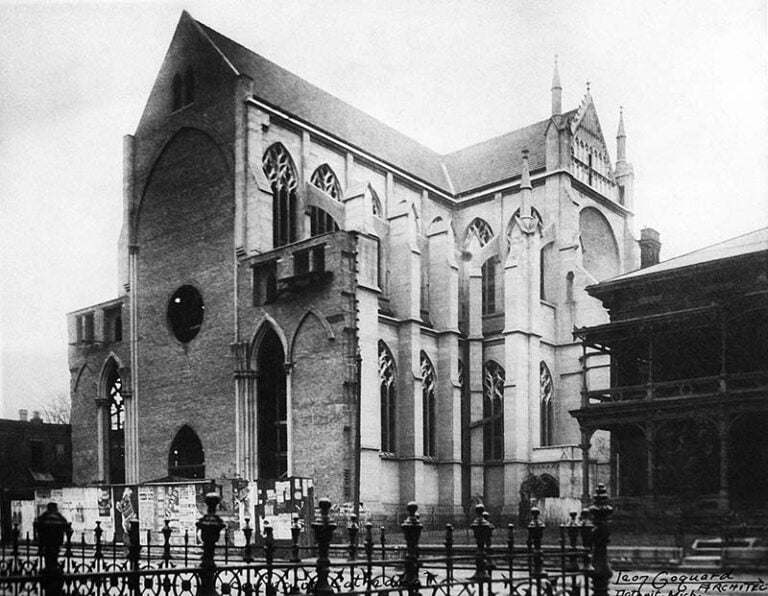By Mark Hansel
NKyTribune Managing Editor
The Sanitation District No.1 of Northern Kentucky Board of Directors approved the proposed budget for the upcoming fiscal year Tuesday without a rate increase, but with two key projects included.
A $3.4 million project to increase capacity in Richwood had been removed from the budget along with four other projects after board members told the utility it wanted a budget without a rate increase.
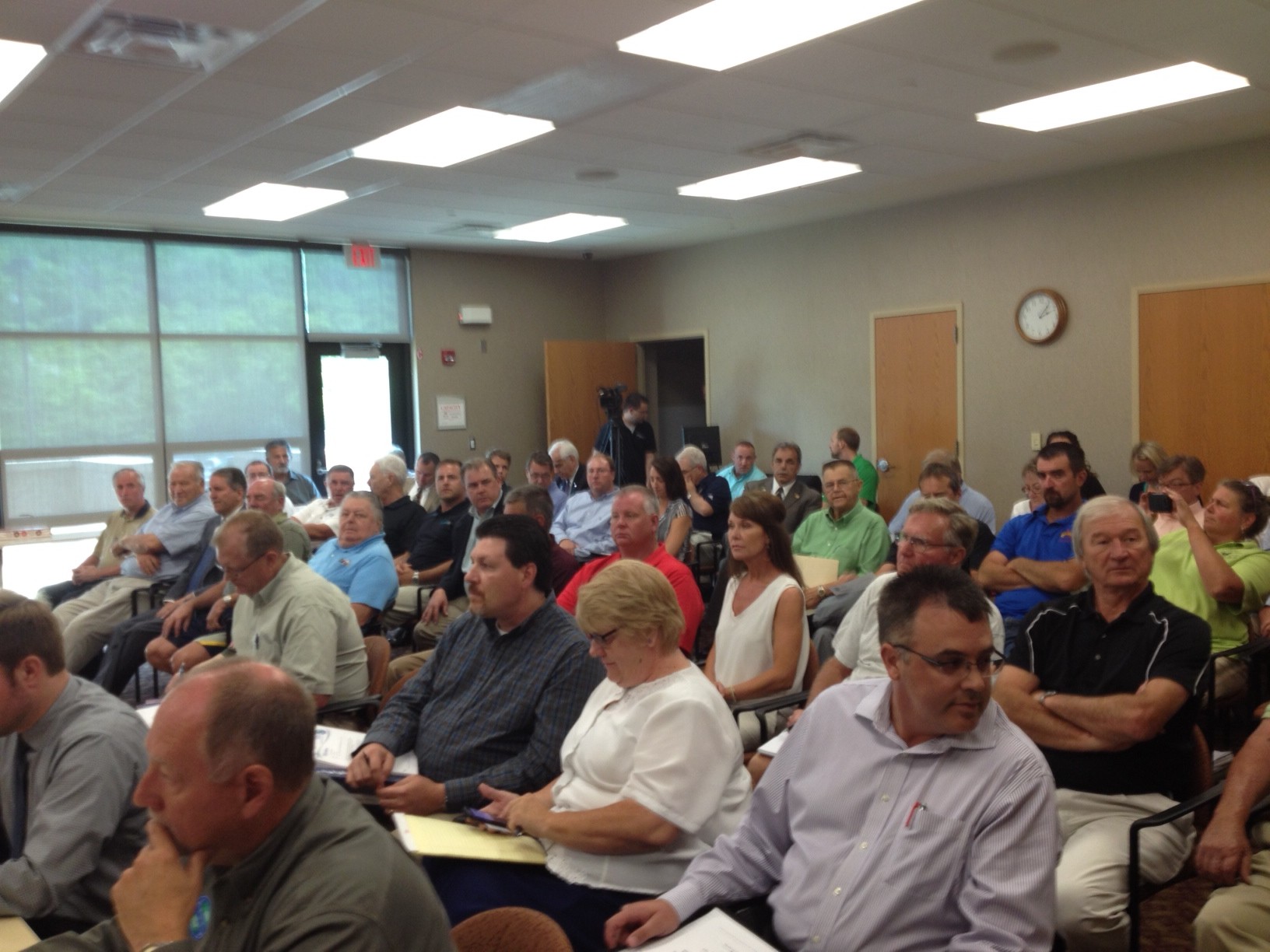
A large crowd attended Tuesday’s SD1 board budget meeting. The board decided not to approve a rate increase for the upcoming fiscal year
Failure to begin the Richwood upgrade would have effectively halted construction of some planned new homes in the area and jeopardized commercial projects in the pipeline.
Also included in the budget was $500,000 for a study to increase capacity in the Hebron area. Boone County has agreed to put up an additional $300,000 to help fund the study.
The utility made adjustments in other areas to compensate for the $4 million needed for those projects.
SD1 is governed by a citizen Board of Directors, who provide budget oversight and approval.
The representation of the eight directors, who serve four-year staggered terms, is based on the populations of the three counties which comprise SD1. Four Directors are appointed by the Kenton County judge executive, and two each are appointed by the Campbell County judge executive and the Boone County judge executive.
While the board got the budget without a rate increase it was seeking with the key projects included, the meeting and the caucus that preceded it were hardly conciliatory.
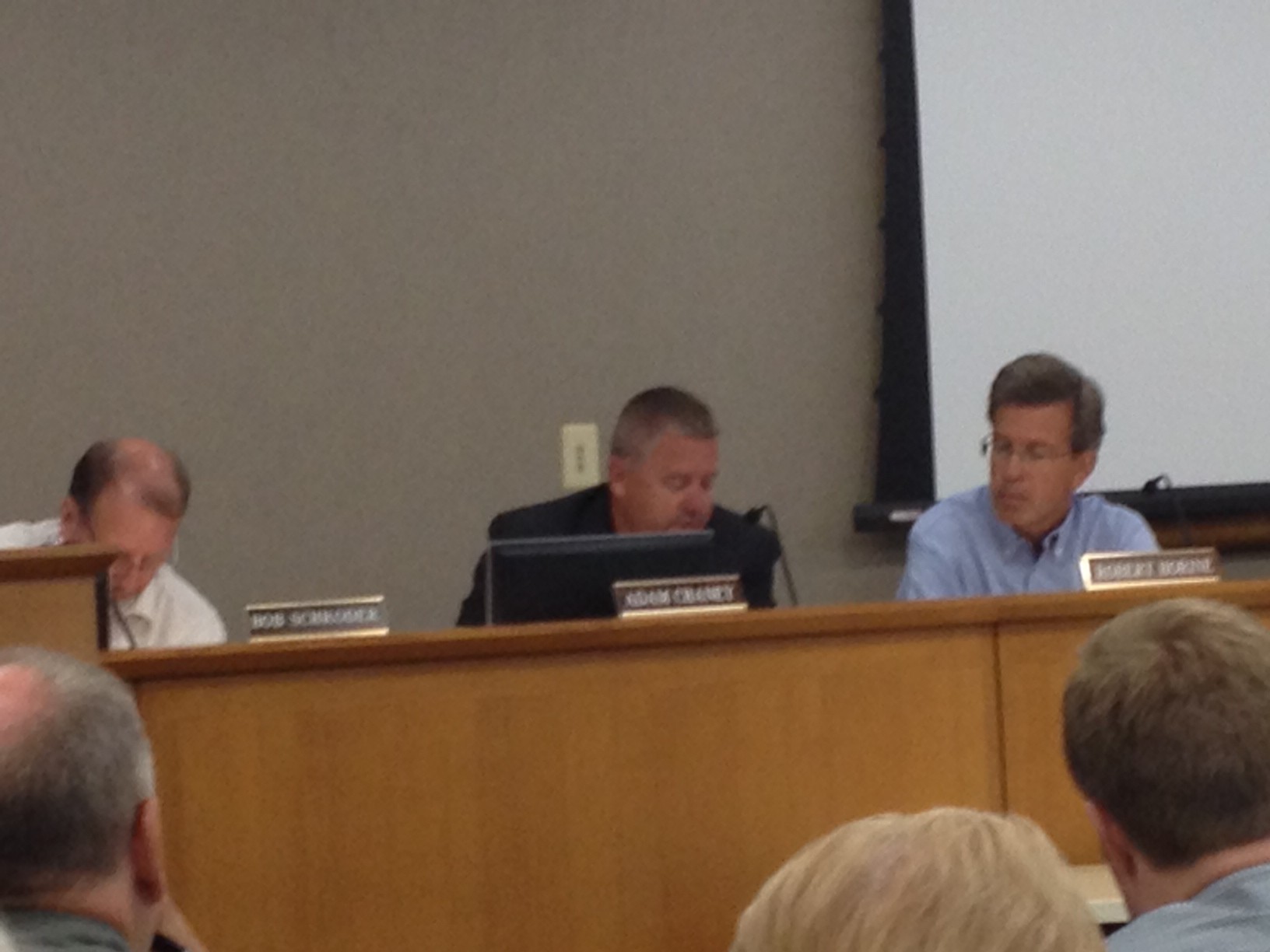
Board member Adam Chaney of Boone County said the chasm in the thought processes of the SD1 leadership and the board of directors is insurmountable.
Chaney is particularly concerned with the SD1 position that even with consistent growth, revenue will diminish without rate increases because of an ongoing decline in consumption.
“If you are buying this (budget) on face value, you are exactly right,” Chaney said. “I don’t buy it on face value. The closer we get to making a decision, the less trust I have.”
SD1 executive director David Rager said the addition of new customers, especially since the economic downturn, is just not enough to offset the annual average of a one percent decline in consumption. That decline is expected to remain consistent until at least 2020.
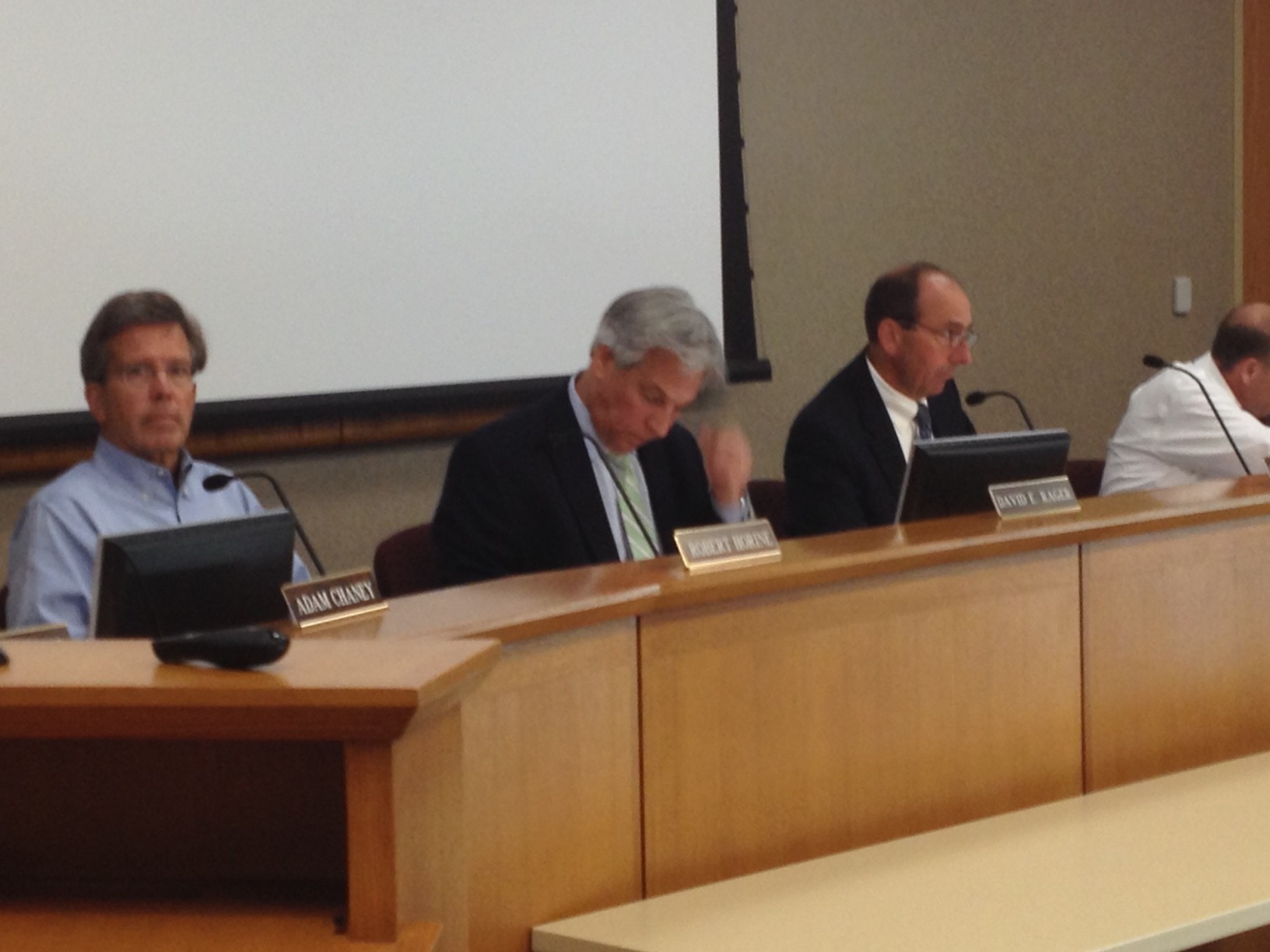
“Our one percent decline in consumption (is) equal to 1,600 homes,” Rager said. “Growth is important, it’s slowing that decline. I don’t fathom that this community is going to be adding 1,600 homes a year between now and 2020.”
SD1’s estimates are based on an increase of 500 homes per year, which was determined by the average number of homes that have been added in recent years.
Brian Miller, Executive Vice President of the Home Builders Association of Northern Kentucky, said the concerns about capacity go deeper than Richwood and Hebron and could stifle development throughout the region.
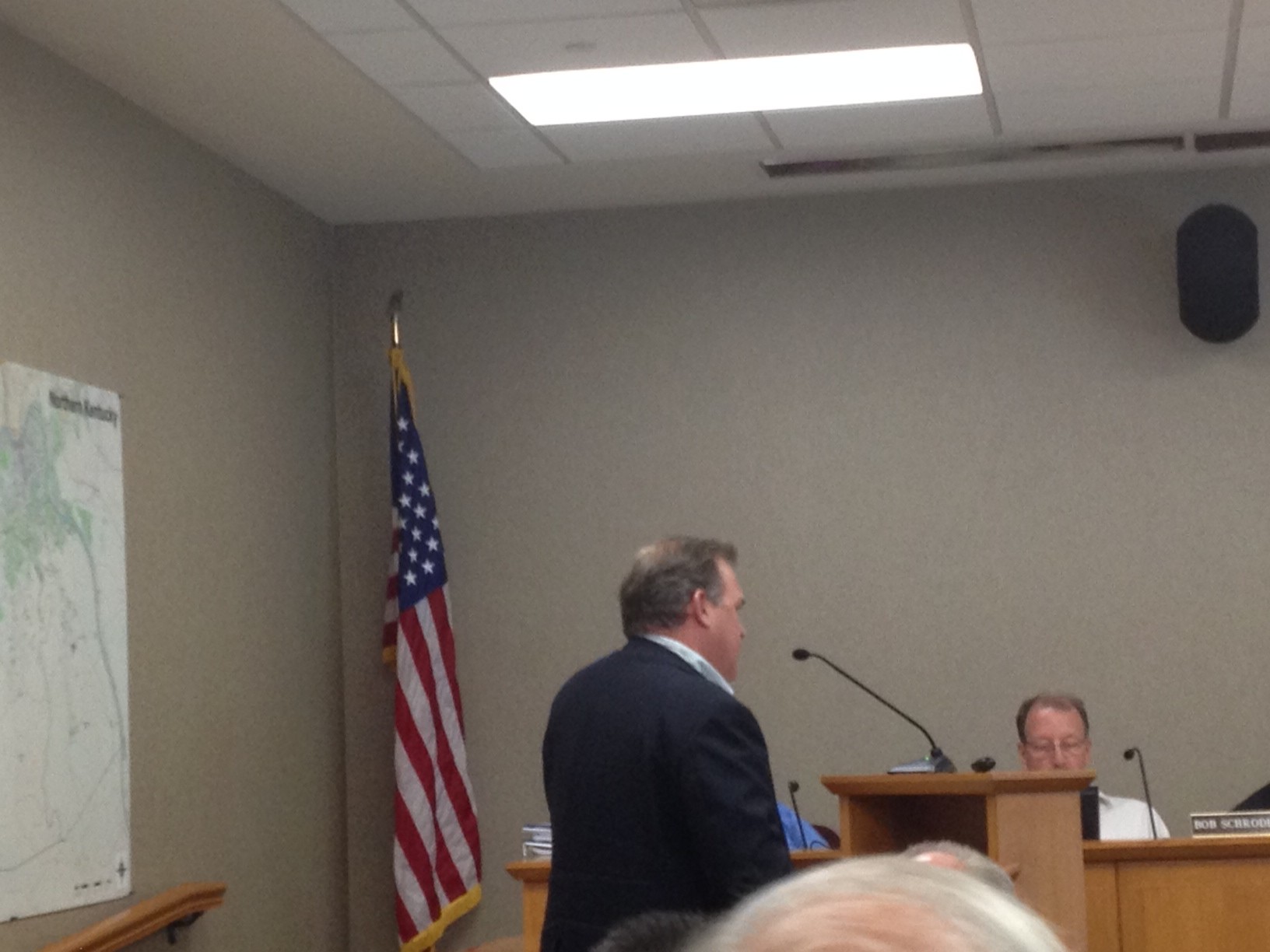
“We have to get to a point, and get to a point quickly, where we are creating capacity reservations as soon as possible,” Miller said. “There are major economic players that are sitting idle in Hebron (and) schools and other public facilities have been built with expectations of growth. The economic model…is simply too short-sighted.”
Capacity reservations assure builders that there will be taps to link new homes to the SD1 system. SD1 recently capped reservations in Richwood, which brought the capacity problem at that pump station to light.
There are currently 581 homes reserved in the Triple Crown area that would be serviced by the Richwood Pump Station. When a developer requested 100 additional reservations for a new phase of residential development, it was denied because the station has reached capacity.
The inclusion of the $3.4 million Richwood upgrade in the budget will create capacity for 2,500 to 3,000 new homes and allows SD1 to release additional reservations.
The board also voted to approve reservations for additional taps in Hebron, despite the fact that funding has not yet been identified for the upgrade project. The $500,000 approved in the budget, coupled with the funds contributed by Boone County, will only fund the study.
By approving the reservations, however, SD1 has essentially committed to provide the upgrades and board members said that was done as a demonstration of good faith to the development community.
The judges-executive from the three Northern Kentucky counties served by SD1 will meet on June 29 and will almost certainly sign off on the budget. Since there was not a rate increase above 5 percent, that is the final requirement for approval.
So while SD1 and its board have worked out their differences sufficiently to reach agreement on a budget for the coming year, there are still plenty of long-term issues facing the utility.
The mistrust among some board members and the SD1 leadership will continue to create friction and the challenges of accommodating growth in an anticipated economic recovery are also a concern.
In addition, the projects from the U.S. Environmental Protection Agency consent decree agreement will have to be completed and aging infrastructure in many of the SD1 service areas will need to be repaired or replaced.
There is also a looming budget deficit that could be realized in just a few years without rate increases and a dwindling fund for improvement projects.
It may be an overstatement to say the budget agreement for the coming fiscal year just kicks the can down the road, but clearly there is still much to be resolved.









